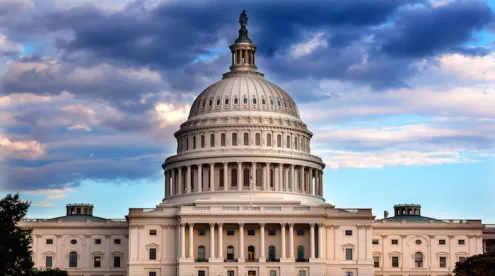The Trump administration’s efforts to curtail congressional oversight of executive branch agencies by individual Members of Congress, including ranking Democratic Members of Committees, ran into significant opposition from an unlikely source: Senator Chuck Grassley (R-Iowa), the Republican Chairman of the Senate Judiciary Committee. Sen. Grassley’s strong reaction is consistent with his role as perhaps Congress’s most effective pursuer of oversight conducted outside of the formal committee process.
On May 1, 2017, the acting head of the Department of Justice’s Office of Legal Counsel, Curtis Gannon, issued a short legal opinion for the White House Counsel, Don McGahn, that “briefly explained” Congress’s “constitutional authority to conduct oversight.” The opinion stated that congressional oversight can “be exercised only by each house of Congress or, under existing delegations, by committees and subcommittees” and their respective chairmen. Individual Members of Congress, including ranking minority members of Committees, cannot engage in oversight, the opinion stated, because such requests are “not legally enforceable through a subpoena or contempt proceeding.”
The legal opinion appears to be the basis for several recent attempts by administration officials to rebuff information requests from various Members of Congress. Politico recently reported that the “White House is telling federal agencies to blow off Democratic lawmakers’ oversight requests.” At a hearing in May, the acting administrator of the General Services Administration told Congress that the “administration has instituted a new policy that matters of oversight need to be requested by the committee chair.”
This new policy did not sit well with Sen. Grassley. Although he currently serves as the Chairman of the Senate Judiciary Committee, and would therefore not be immediately affected by the policy, Sen. Grassley has spent decades pursuing congressional oversight of agencies as a chairman, ranking minority member, and individual Senator.
In a June 7, 2017, letter to President Trump, Sen. Grassley tore into the Gannon opinion. He contended that both the Constitution and applicable court precedents provide that “all members need accurate information from the Executive Branch in order to carry out their Constitutional function.” He criticized the opinion for basing its conclusion on subpoena enforcement. This position, Sen. Grassley said, conflated Congress’s ability to compel a response and Congress’s ability to seek information voluntarily from the executive: “[T]he scope of information Members of Congress need from the Executive Branch in order to carry out their Constitutional duties is far broader than merely what is obtained through compulsory process.” The “vast majority of information Congress obtains . . . is obtained voluntarily, not by compulsion,” he added. (He also took the Office of Legal Counsel to task, noting that the opinion “fails to cite and analyze any authority that challenges its conclusion.”)
In a separate action partially in response to the Office of Legal Counsel’s opinion, on June 5, 2017, Rep. Elijah Cummings, the ranking Democratic Member of the House Committee on Oversight and Government Reform, sent a document request letter to the acting administrator of the General Services Administration. The letter requested a variety of documents related to a lease by President Trump’s business interests of the Old Post Office (now known as the Trump International Hotel Washington D.C.).
Notably, the letter was signed by all eighteen Democratic members of the Committee, and it invoked the Members’ statutory authority to access executive branch information under the little-know “seven Member rule.” The statutory seven Member rule, which dates from the 1920s, requires an executive branch agency to provide information requested by “the Committee on Government Operations of the House of Representatives, or of any seven members thereof.” (The Committee on Government Operations was the Committee’s name at the time.) According to the Democratic letter, the General Services Administration has failed to comply with a request by eight Members of the Committee earlier this year. It is likely that the administration will have a harder time resisting oversight requests conducted under this statutory provision. For example, in 2002, Rep. Henry Waxman successfully sued the Bush administration for access to census data under the seven Member rule.
There are additional risks for the administration, most obviously the theoretical possibility that today’s ranking Democratic Members could become tomorrow’s chairmen after the 2018 elections. Sen. Grassley knows this first hand. He conducted numerous, lengthy investigations, even as he moved from ranking to Chairman and back again throughout his career.






 />i
/>i

